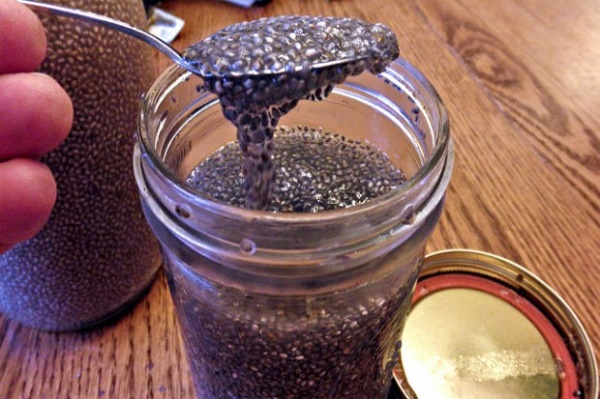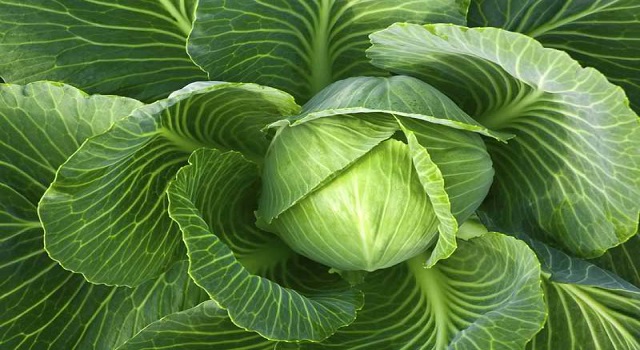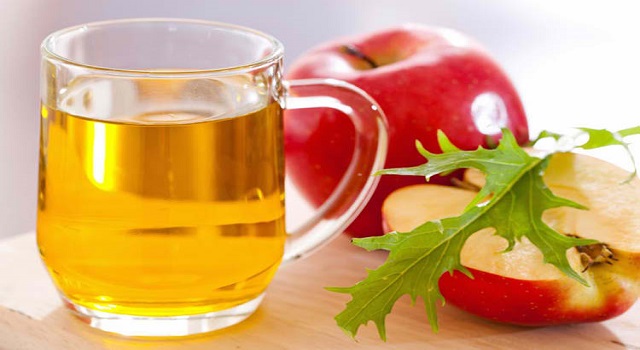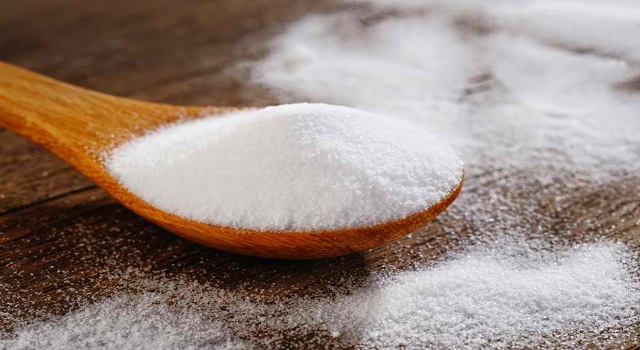What is a Natural Laxative
Opening up to someone that you are having “potty problems” can be the most awkward topic you would ever tell a person.
Having a regular bowel movement has always been considered as a hallmark of good health for its inherent role in detoxing the body. But not all cases of taking a dump is seamless and the same—other times, the act of defecating can be laborious and even painful, otherwise referred to as constipation.
Developing constipation can be a really difficult situation. Being able to use the toilet regularly makes a huge difference. Everyone goes through constipation problems and it is no walk in the park to achieve easy relief for a person suffering from it.
Constipation can be a serious discomfort. It doesn’t only mean being unable to empty your bowel for days, but can cause unsatisfied and tiring visits to the toilet.
It can also predispose to complications like high blood pressure, heart attacks, colorectal disorders, and hemorrhoids.
Poor diet, lack of activity, and stress are major factors associated with constipation. Untreated constipation can possibly become a severe type of the condition known as obstipation which can even lead to colon cancer.
When in need of quick and natural relief, here are a few options to choose from. A natural laxative can be better than chemical options for you will be able to specifically identify what you are introducing inside your body.
Natural Laxatives for Constipation Relief
From time to time, you may end up looking for foods that are natural laxatives in order to achieve constipation relief knowing that constipation can occur with several reasons in the wrong time.
Being constipated is significantly distinct from having a normal stool and having a diarrhea in that the quality of the poo is neither soft nor watery in consistency, but rather, is too solid to not easily pass through the anus. You would know you’re having constipation when an otherwise simple task of pooping has become one which requires forceful straining.
Fortunately, there are several natural food laxatives you can use to address this horrible problem. Best of all, natural laxative foods have many more health benefits which simply tells that it can also help in the overall improvement of your health and well-being.
There are several foods that can act as natural laxatives but below are the 10 best ones for constipation relief.
1. Water and Coconut Water
People who lose body water by sweating and drinking little water risk themselves not only of becoming dehydrated, but also having a potential bout with constipation. According to a study entitled Water, Hydration, and Health, it relates the consumption of water with gastric emptying as seen at the intestinal level. However, the study claims that water hydration as a means to address constipation is mostly only effective towards individuals who are in a dehydrated state.
Water has always been a number one recommendation in the management and treatment of many different ailments of the body. It is considerably the best natural laxative. Keeping the body hydrated is very important and drinking warm water is a good way to induce bowel function. Taking laxatives without sufficient water intake won’t make treatment any better. Drinking a glass or two will hydrate digestion, soften stools, and prevent pains associated with constipation.
When experiencing a bowel position that just won’t move, drinking coconut water can also be one of the best things you should consider. The coconut water doesn’t just taste good, it does so many things in helping your body too! It’s sweet to the taste, and it helps in cleansing your colon and clearing out your urinary tract. Not only that, this awesome drink can lower your cholesterol levels. But drinking too much won’t be a good idea, it may result to lose stools. Other benefits the drink provides include reduction on risks towards contracting glaucoma and a decrease in the eyes’ fluid pressure that may be exacerbated by straining.

- Barry M. Popkin, Kristen E. D’Anci, & Irwin H. Rosenberg (2011). Water, Hydration and Health.
- Basu Patrick, Shah Niraj James, Aloysius Mark, & Brown Jr. Robert (2015). Novel colonoscopy preparation of organic coconut water with miralax and dulcolax in split doses for decompensated cirrhotics: A randomized double blinded open labelled clinical pilot single centered observational study. COSMIC study.
2. Coffee
Drinking coffee in order to simplify a business at the toilet may not be the most popular reason as to the common consumption of a cup of Java. But for individuals who are struggling to maintain a regular bowel movement, drinking a cup of Joe may indeed do the trick, at least according to the two separate studies by Boekema, P.J. et al and Brown, S.R. et al which link the drinking of coffee to colon movement.

3. Chia seeds
Seeds in our food are generally known for having a rich amount of fiber which is crucial in a healthy bowel movement. Chia seeds, true to its name as such, is no exception to this rule. A study conducted by Stephen, A.M. & Cummings, J.H. gives insight to how fiber play an essential role in forming a normal stool for an eventual easy release. Specifically, it pertains to the indigestible form of fiber whose presence adds to the bulk of the stool, essentially giving it solid form.

4. Cabbage and Green, leafy veggies
There are lots of vegetables that fit in this group to be named individually. But if there is something commonplace to all of them, aside from having an abundant verdant coloration to their leaves, is that they also make for a thriving source of magnesium which Izzo, A.A. et al pointed out as having a natural laxative effect to the body. This mineral’s laxative effect comes from its poor absorption in the intestine which induces an osmosis, thereby drawing water into the intestine.
Cabbage is also a really good solution to achieve constipation relief. Too many of us overlook cabbage’s capability as a natural laxative despite its affordability and beneficial properties. An additional great option to boost results is to combine the effects of cabbage with healthy probiotics in sauerkraut for a better digestive functioning.

- Izzo AA, Gaginella TS, & Capasso F (1996). The osmotic and intrinsic mechanisms of the pharmacological laxative action of oral high doses of magnesium sulphate. Importance of the release of digestive polypeptides and nitric oxide.
- Mehrdad Zeinalian, Mehdi Eshaghi, Homayoun Naji, Sayed Mohammad Masoud Marandi, & Sedigheh Asgary (2017). Constipation in Iranian-Islamic Traditional Medicine: The Origin of Diseases.
- Jimmy E O & Okon G E (2019). Antiulcerogenic and Contractile Motility Potentials of Cabbage (Brassica Oleracea) With Metoclopramide.
5. Apples & Apple Cider Vinegar
Although, technically, constipation is not a disease, but rather a symptom to an existing condition. Eating apple regularly, however, can take the difficulty in defecating as an addition to the list of medical conditions which it can save our bodies from. The benefit comes from the apple’s soluble dietary fiber, pectin, which Xu, L. et al credited in their study for alleviating the issue of constipation. Pectin, as it appears, has a beneficial effect to the gut’s microflora, essentially fostering a healthy gut which is tantamount to a healthy bowel movement.
Since apples are natural laxatives rich in digestive fiber and Vitamin C, it makes apple cider vinegar also a great option towards immediate constipation relief in getting your digestive system on track. Add a tablespoon of the vinegar to your next glass of water and your intestines will be well pleased. Believe it!

6. Aloe Vera
Many people know that aloe vera is helpful in keeping our skin healthy but not aware on some of the other health benefits it can offer our body. In fact, there’s a good chance that you aren’t aware that aloe vera can also be taken by mouth? Yes, it can be orally consumed.
The aloe vera plant is a popular laxative used in traditional medicine. It is identified for having anthraquinone glycosides, which is a compound that has the ability to stimulate the digestive tract and draw water into the colon. Drawing from this belief, a study group by Foster, M. et al gave claim to the notion by showing how the plant improved the subjects’ bowel movement with its administration.
Inside the skin of the aloe vera plant is a liquid known as aloin. This liquid is turned to powder and into a pill form which now can be taken as a natural laxative for constipation relief. However, besides constipation relief, aloe vera is known to have many more components that can be really helpful with other concerns.

7. Prunes & Dates
Prunes have always been known as a laxative. Science even supports the claim by explaining how Sorbitol, a natural sugar alcohol found in the fruit, is potent in bringing water into the intestine and subsequently inducing bowel movement. A research by Lever, E. et al further corroborates to this claim based on the comparison of prune to another natural laxative, which saw the former being superior in effect.
Prunes are well known to have amazing laxative properties because of the high Sorbitol content. This natural carbohydrate won’t be easily digested. This makes it a great remedy for immediate constipation relief. Prunes are high in soluble fiber and soaks up a lot of water having the stools bigger and easy to pass through. It also has a compound called dihydroxyphenyl isatin which helps in contracting the intestinal walls. This causes regular bowel movement without any problem. Drinking prune juice everyday will help soften the stools and ease the friction of the colon walls. Prunes and prune juice are simply one of the best natural laxatives for adults.
Dates are rich in iron and fiber. Although some might wonder if it is a good treatment option for constipation since iron is also reported to cause constipation. Actually, it can definitely act as a natural laxative when taken in the right form. To do this, soak two dates in drinking water overnight. It can be mashed along with the water. Strain the juice before drinking.

8. Olive oil, Castor Oil, Fruit Juices, Etc
Fruit juices (like orange juice) and olive oil can act as a natural laxative. Orange juice has sufficient fiber contents. Fruit juices (orange, banana, or strawberry) are the best natural laxatives for children.
Olive oil, on the other hand, forms a protective coating around colon walls and eases for bowel movement. Mix an equal amount of orange juice and olive oil. Drink once or twice a day depending upon the gravity of the problem. Castor oil can also be useful considering that it is known to be one among fast-acting natural laxatives.

- Christiane Ishikawa Ramos, Aline Fátima Andrade de Lima, Daniela Gimenes Grilli, & Lilian Cuppari RD, PhD (2014). The Short-Term Effects of Olive Oil and Flaxseed Oil for the Treatment of Constipation in Hemodialysis Patients.
- Arslan GG & Eşer I (2010). An examination of the effect of castor oil packs on constipation in the elderly.
- Sun Hwan Bae (2014). Diets for Constipation.
9. Beans & Legumes
Another set of food in the veggie group that is packed full of digestive-friendly fiber are the legumes, which includes peanuts, peas, lentils, chickpeas, and beans. Not only are these foods rich in fiber which are proven to regulate defecation, they also contain butyric acid which Pituch, A. et al revealed as having the potential for a laxative, albeit inconclusive. Either way, knowing that legumes contain fiber is more enough a reason to consume them as far as mitigating the possible onset of rough defecation.
Beans and legumes are fiber-rich very valuable when included into your diet. These natural laxatives can be used with dipping sauces or side dishes. The fiber rich food is low in cholesterol, so there’s no need of worrying what it can do to your overall health. Pair legumes with whole grain to get a complete protein with every bite. The best natural laxatives for toddlers are high fiber foods.

10. Kiwifruit and Berries
Berries, in general, are known for being a powerhouse of two kinds of fiber—the soluble and the insoluble kind, both of which play a critical role in producing normal stool. Soluble fiber, being absorbent of water, creates a gel-like substance which softens the stool and lubricates the digestive tract for easy passing; while insoluble fiber, being solid and indigestible, adds to the bowel itself, giving it form.
Having pectin and both the two kinds of fiber, the kiwifruit is best described as having the best of apple as well as berries. Therefore, like apple and berries, the kiwifruit’s laxative effect works in three ways—it promotes the proliferation of good gut via the pectin, it forms the stool via the insoluble fiber, and facilitates the smooth emptying via the soluble fiber. A study done by Chinese researchers Chan, AOO. et al showed positive result after having tested giving kiwifruit to constipated patients.

- Carla S Coffin, MD FRCPC & Eldon A Shaffer, MD FRCPC (2006). The hot air and cold facts of dietary fibre.
- Jing Yang, Hai-Peng Wang, Li Zhou, & Chun-Fang Xu (2012). Effect of dietary fiber on constipation: A meta analysis.
- Annie On On Chan, Gigi Leung, Teresa Tong, & Nina YH Wong (2007). Increasing dietary fiber intake in terms of kiwifruit improves constipation in Chinese patients.
BONUS: Baking Soda
It is so versatile that it does as much as 95% of getting the job done. It’s known to work every time. It allows air to get out easily, relieving pain from pressure brought about by constipation. Drink it with half cup of hot water. The faster you take it, the quicker it works in making you feel better. Baking soda is great for instant constipation relief.

Constipation may be the single most problem you may want to keep for yourself and not ask anyone for help. However, it will surely all come down to the fact that it can seriously become a big hindrance to your day to day life and activities.
To be honest, when nature calls for you to get to the rest room, go!
One of the common causes of constipation is delaying the need to defecate. Your body calls for a reason, and it is important for you to listen. The longer you hold for it, more water will be absorbed out of the stool. This makes it harder and more painful to have it out.
Using a good herbal laxative tea is the next best thing (like flaxseeds and psyllium) before turning into medications.
Furthermore, squatting over the toilet may help relieve constipation and give a kick start to your colon, but it would be easier to do so with the help of natural laxatives to put your body into a natural position that understands “it’s time to let it go!”
- READ MORE




